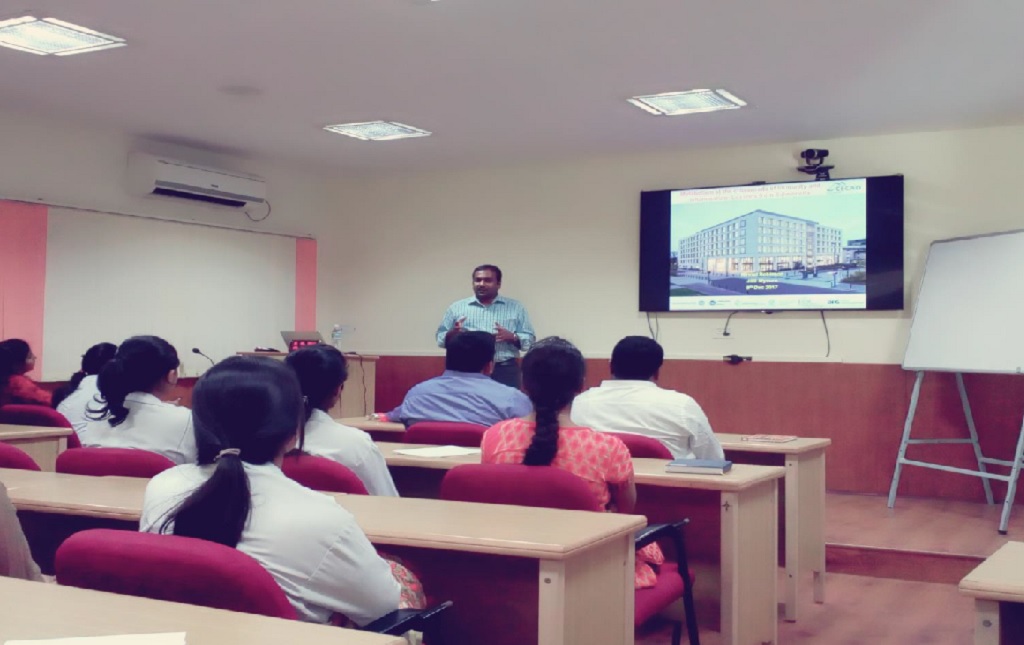JSS College of Pharmacy, Mysore
Targeting the interface between metabolism and immunity

Dr. Nirmal Robinson from the Institute of Aging, University of Cologne delivered a dynamic and extensive lecture in “metabolism at the crossroads of immunity and inflammation: lessons from Salmonella” on the 08/12/17.He started the lecture by explaining the focus of his institution in helping the individuals to gracefully age but ended the lecture by opening a wide door of immune-metabolics to all the spectators leaving them envious about his research credentials. He said that he and his team believes that “evolution of life span and immunity was influenced by infection” and hence they mainly use pathogens to identify novel immunemodulatory conduits and also investigate how these pathways intercept with longevity mechanisms. He then gave a brief introduction to the first and second line defense mechanism of immunity. He then briefed about his pathogen in concern, Salmonella typhimurium, a gram negative facultative intracellular bacteria causing typhoid like disease in mice and gastroenteritis in humans. He then discussed in detail about all the models (knock outs) used by his team for proving macrophages in as major cells involved in 1st line defense mechanism. He then spoke about two new concepts, necroptosis and immunometabolism (were immunity meets metabolism).In the later parts of the session he gave a detail explanation of how Salmonella typhimurium downregulates glycolysis and also how he proved glycolysis plays an important role in bacterial clearance. He explained the importance of phagocytes in bacterial clearance and revealed the complications involved in the otherwise simple considered “phagocytosis” through the “kiss and run pathway. On detailing his experiments he also gave interesting assays for analyzing phagolysosomal activity as well as antigen presentation capacity of the phagosomes by C12FDG and ovalbumine beads. On conclusion he proved the S.typhimurium mechanism of inhibiting glycolysis mainly by inhibiting the acidification process essential for the phagosome-lysosome ligation by attaching to the aldolase enzyme required to regulate vacuolar ATPase (required to maintain acidic pH) assembly of V0-V1 complex. The talk was really motivating and Dr. Nirmal later on even gave some tips essential for research prosperity for an individual.
Read More